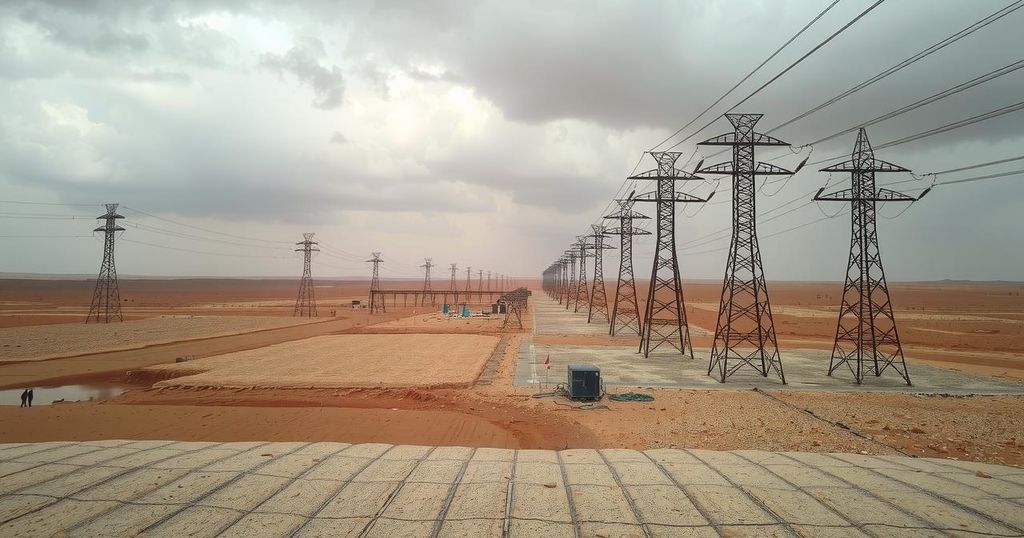Trump Administration Ends Waiver for Iraqi Purchases of Iranian Electricity

The Trump administration has ended a waiver for Iraq to buy Iranian electricity, reinforcing its ‘maximum pressure’ campaign on Iran. National Security Advisor Mike Waltz highlighted Iraq’s need for energy independence and addressed regional disputes affecting oil flow. The U.S. focuses on further reducing Iran’s oil exports while seeking diplomatic solutions for nuclear negotiations.
The Trump administration has officially terminated a waiver that permitted Iraq to purchase electricity from Iran, reinstating measures under the ‘maximum pressure’ campaign aimed at limiting Tehran’s financial gain. National Security Advisor Mike Waltz communicated this decision to Iraqi Prime Minister Mohammed Shia al-Sudani, asserting that the move is part of efforts to ensure Iran does not develop nuclear capabilities. Furthermore, Waltz commended Iraq’s pursuit of energy independence and urged the country to increase collaborations with Western and U.S. energy firms.
Waltz also addressed ongoing disputes between the Iraqi government and the Kurdistan Regional Government, highlighting the importance of resolving these issues to reduce dependence on Iranian oil. The initiative aligns with a broader global effort to stabilize oil supply and manage pricing while undermining revenue streams for both Iran and Russia. In his communication with the Prime Minister, Waltz emphasized the necessity for Iraq to fulfill contract obligations towards U.S. energy companies and hire an investment coordinator for foreign investment interests.
While the current waiver only pertains to electricity and Iraqi reliance on Iranian imports has diminished to 4%, any extension to natural gas provisions would severely impact Iraq’s energy stability, risking a loss of over 30% of its electricity. Former President Joe Biden had maintained this waiver until its recent expiration, and the U.S. retains considerable leverage over Iraq due to substantial reserves held in American banks. Currently, approximately 2,500 U.S. military personnel remain in Iraq to aid in the fight against ISIS.
In addressing Iran, President Trump disclosed his outreach to Supreme Leader Ayatollah Ali Khamenei, urging for a willingness to negotiate a nuclear agreement to avoid potential military action. Trump expressed a preference for diplomatic solutions over military confrontations, stressing the urgency of the matter as Iran enriches uranium at alarmingly high levels.
Amidst international sanctions, Iran continues to export significant volumes of oil daily. Following Trump’s directives, the U.S. Treasury is focusing on reducing these exports to negligible levels. Additional targets for sanctions may include international partnerships, such as those involving Indian investments in development projects like the Chabahar port, which facilitate trade links with the Middle East. Furthermore, the U.S. is likely to intensify efforts against nations like China, which constitutes a significant market for Iranian oil.
The termination of the waiver allowing Iraq to purchase Iranian electricity is a strategic move by the Trump administration in alignment with the broader ‘maximum pressure’ campaign against Iran. This action encourages Iraq toward energy independence while complicating relations with Iranian oil. The ongoing diplomatic endeavors underscore the urgency in resolving nuclear tensions with Iran, as well as the repercussions for global oil markets.
Original Source: www.foxnews.com








